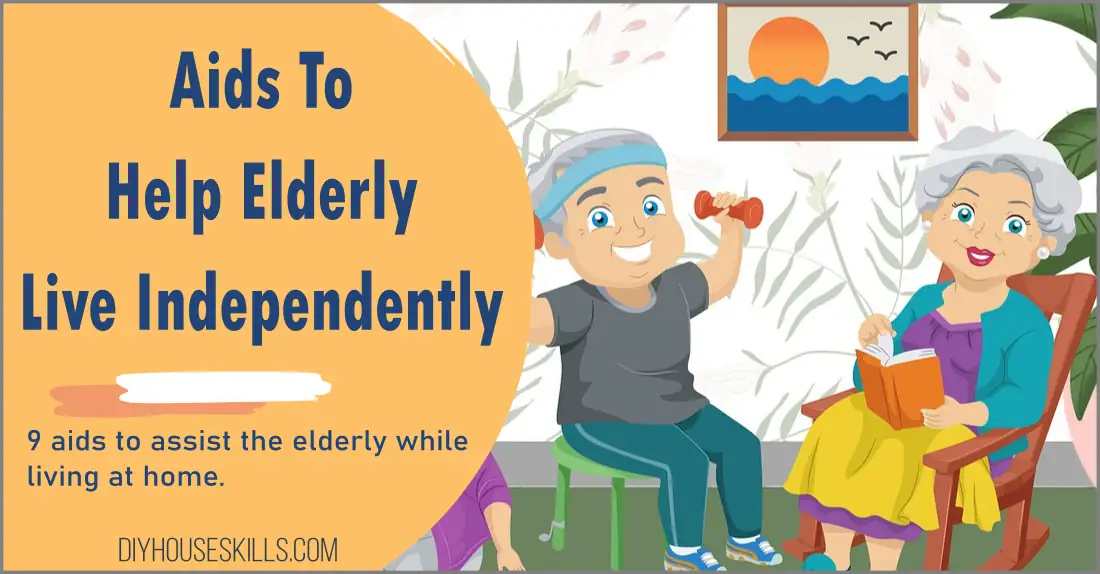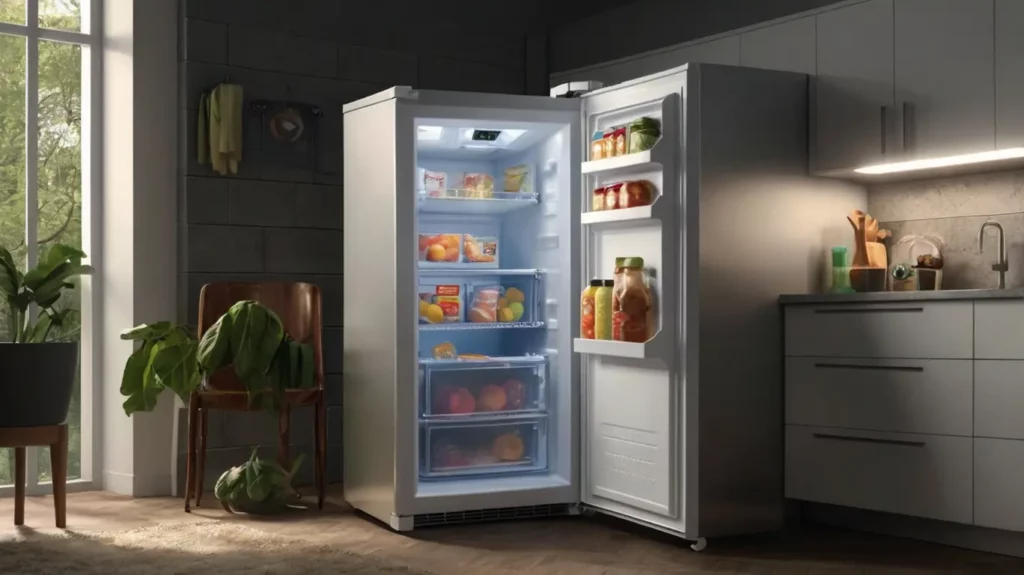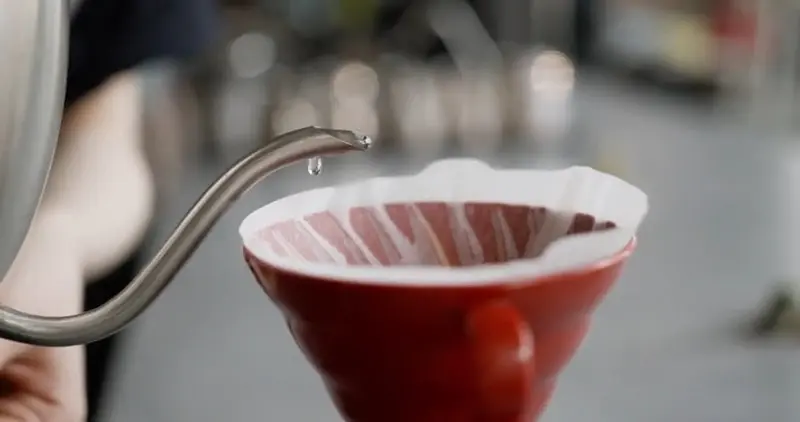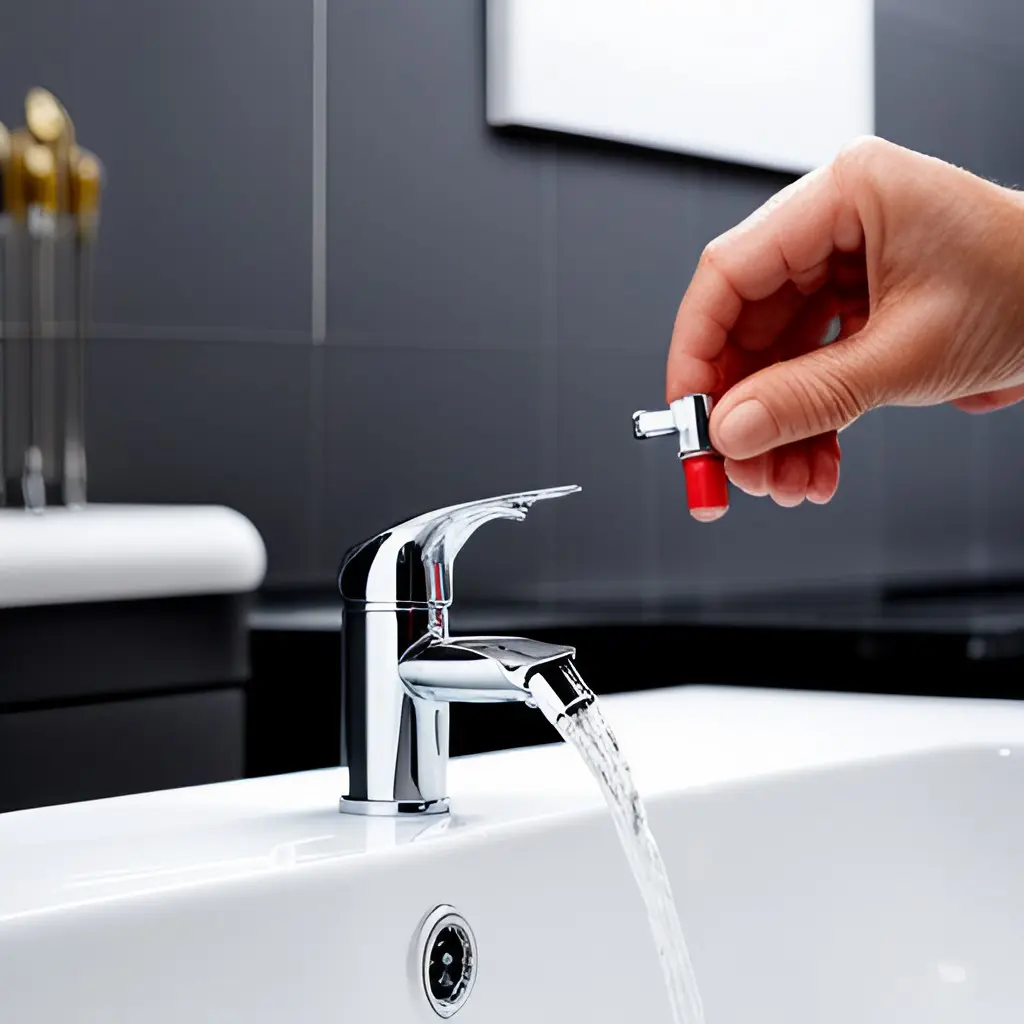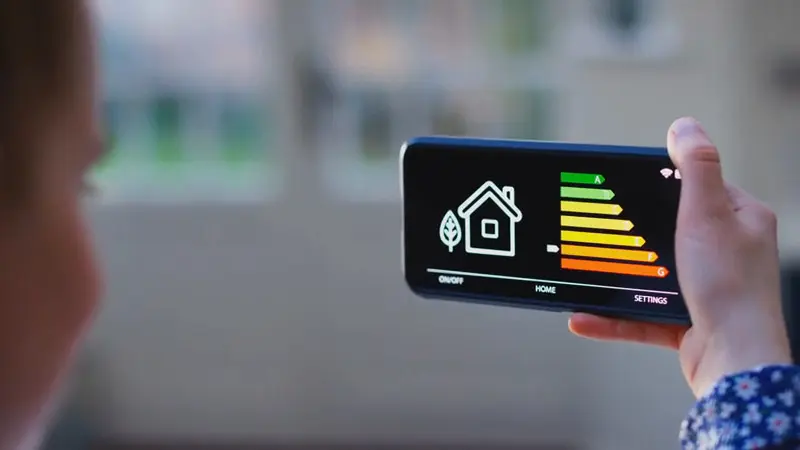This article is about aids for the elderly and how to help them live an independent life while they remain in their home. There are aids available to help with hearing loss, writing, and managing finances, as well as aids designed specifically for people with arthritis.
These aids can make it much easier for elderly individuals to continue doing the things they love.
THIS POST MAY CONTAIN AFFILIATE LINKS. As an Amazon Associate, I earn from qualifying purchases. PLEASE READ MY DISCLOSURE FOR MORE INFO.
Aids For The Elderly
As people grow older, they may find that they need some assistance to live independently. Thankfully, there are many different types of aids available to help them do this.
In this article, we will discuss nine of the most common aids that can help elderly people stay healthy and independent.
1. Assistive Devices For Bathing
Assisted bathing devices can help people with a wide range of disabilities or impairments maintain their hygiene independently.
There are a number of different types of devices available:
Simple Grab Bars
Grab bars can be permanently installed in the bathroom to provide additional support while bathing. Another option is the suction cup designed grab bars that allow you to move the bars around as needed.
Shower Benches
These benches are designed to help those with limited mobility have a place to sit while they shower or bathe. The Drive Medical 12011KD-1 Tub Transfer Bench with Adjustable Backrest is a highly-rated bench available on Amazon.
Shower Chairs
Shower chairs provide a comfortable and secure seat for elderly individuals who have difficulty standing in the shower. These are similar to the bench but are portable and easy to move as needed.
Security Poles
Security poles reach from the floor to the ceiling to provide something to hold onto for the shower or toilet. They are easy to install and remove when not in use.
An example is this one found at Amazon that allows you to place it anywhere in the home.
Bath Lift Chairs
Bath lift chairs allow people to be lifted into the bathtub or shower with minimal effort.
Whether you’re looking for a way to increase your safety in the shower or just make bathing more comfortable, there’s an assisted bathing device that can meet your needs. For example, the Amazon choice is the Drive Medical 477150312 Whisper Bath Lift Chair.
2. Assistive Devices For Dressing
Most people take for granted the simple act of getting dressed each day. But for those with limited mobility, even the simplest task can be a challenge.
Fortunately, there are a variety of assistive devices that can help.
Button Hooks and Zippers
These aids are designed for people with limited hand dexterity. They feature a long handle with a hooked end to help you fasten buttons easily. Can be used to fasten clothing without having to grasp small objects.
Dressing Sticks
These sticks are designed to help those who cannot bend or reach their feet. The stick has a hook at one end to help you pull up your pants, socks, and shoes.
Reachers
These aids are designed to help you pick up items that are out of reach. They feature a long handle with a grip at one end to make it easier to pick up items.
Adaptive Clothing
Adaptive clothing is designed specifically for those with limited mobility or dexterity. It includes garments with Velcro closures, snaps, and elastic waistbands that are easy to put on and take off.
With the help of these and other assistive devices, even those with limited mobility can maintain their dignity and independence.
3. Assistive Devices For Grooming
Anyone who has difficulty maneuvering a standard toothbrush or hairbrush knows how important it is to have access to effective grooming aids.
There are a wide variety of assistive devices available that can help make basic hygiene tasks easier for people with limited mobility.
Electric Toothbrushes
These toothbrushes are designed to make brushing easier for those with limited dexterity. They feature a soft brush head that rotates quickly, making it easier to clean teeth without having to use a lot of pressure.
Can be a great option for people who have trouble gripping a brush.
Long-Handled Brushes and Combs
Can help those who have difficulty reaching their hair. They have a long handle that allows you to brush or comb your hair without having to reach.
They can be a great option for those who have difficulty using a traditional brush.
Long-Handled Sponges and Toe Separators
These aids are designed to help those with limited mobility keep their skin clean and healthy. The long handles make it easier to reach areas that may be difficult to get to, such as the back or between the toes.
The toe separators are designed to help keep your feet clean and free of bacteria.
By taking advantage of these types of products, people with limited mobility can maintain their grooming routines with relative ease.
4. Assistive Devices For Eating
Anyone who has ever struggled to use a fork or spoon knows how frustrating it can be to not have the proper tools for the job.
For people with limited mobility or dexterity, simple tasks like eating can be a real challenge. Fortunately, there are a number of assistive devices that can help.
Adaptive Utensils
These utensils are designed to make it easier for people with limited dexterity or hand strength to hold and maneuver a utensil. They feature a wide handle that is easy to grip and are often weighted for added stability.
Rockers And Wedges
These aids are designed to help those with limited mobility to feed themselves. The rockers have a curved base that rocks back and forth, making it easier to push food onto the utensil. The wedges are designed to keep the food in place, so it can be more easily pushed onto the utensil.
Suction Devices
These aids are designed to keep plates and bowls from slipping or tipping over. The suction cup at the bottom of the plate can be pressed down to keep it from moving. This can be a great option for those with limited arm strength or coordination.
By making some simple adjustments, mealtime can be much more enjoyable for everyone involved.
5. Assistive Devices Around The House
For seniors and people with disabilities, living at home can present some unique challenges. Even everyday tasks like getting out of bed or taking a shower can be difficult without the right support.
However, there is a wide range of assistive devices that can help make life at home more manageable.
Raised Toilet Seats
These aids are designed to help those with limited mobility get onto and off the toilet. They are raised, making it easier to sit down and stand up. Some even come with armrests for additional support. Try the HealthSmart Raised Toilet Seat Riser That Fits Most Standard Bowls for Enhanced Comfort and Elevation with Slip Resistant Pads.
Transfer Benches
These benches are designed to help those with limited mobility transfer from a wheelchair or bed to the shower. They have a seat that slides into the shower, making it easier to get in and out of the tub.
Transfer aids like this can be a great way to make bathing safer and more comfortable.
Adjustable Bed
In the bedroom, an adjustable bed can make it easier to get in and out of bed. These beds are adjustable, so you can raise or lower the head and foot of the bed to make it easier to get comfortable.
Some even come with massage functions, which can help to relieve pain and stiffness.
Appliances
And in the kitchen, basic appliances like microwaves and dishwashers can be replaced with models that are designed for people with limited mobility.
These aids feature lowered controls or larger buttons, making them easier to use.
Wheelchairs and Power Chairs
For those with more severe mobility issues, wheelchairs and power chairs can provide greater freedom to move around independently.
With the right assistive devices, people of all abilities can enjoy the comfort and independence of living at home.
6. Hearing Aids
According to the National Institute on Deafness and Other Communication Disorders, approximately 15% of American adults aged 18 and over report some degree of hearing loss.
While hearing loss can occur at any age, it is most common in older adults.
There are a variety of causes of hearing loss, including exposure to loud noise, certain diseases and conditions, and the natural aging process. Hearing loss can have a significant impact on quality of life, making it difficult to participate in conversations, follow directions, or even enjoy favorite television shows and movies.
For many people with hearing loss, hearing aids are an essential tool for improving communication and quality of life.
- Hearing aids are small electronic devices that amplify sound and make it easier to hear clearly.
- They are custom-fit to each individual’s ear shape and size, and they can be adjusted to address specific hearing needs.
- Today’s hearing aids are also equipped with advanced features that allow them to connect wirelessly to phones and other devices.
It is advisable to have a hearing test and consult with a specialist in order to select the most effective hearing aid for your needs.
With the help of a hearing aid, people with hearing loss can once again enjoy the sounds of their favorite music, television shows, and conversations with family and friends.
7. Writing Aids
For people with limited mobility, writing can be a difficult task. Even basic tasks such as signing documents or jotting down a note can be a challenge.
Fortunately, there are aids available to make writing easier.
Specialty Pens and Pencils
There are pens and pencils designed specifically for those with limited mobility. Try the Super Big Fat Pens for Arthritis.
These aids feature ergonomic shapes that make them easier to grip, as well as jumbo-sized barrels for added comfort.
Angled Risers
Angled risers are aids that attach to the writing surface, allowing the paper to be positioned at an angle for more comfortable writing.
These aids can be especially helpful for those with limited mobility or arthritis.
Keyboards and Software
For people who are unable to use their hands, keyboards and voice-activated software can be used to type documents on a computer.
These aids allow individuals to express themselves and stay connected with family, friends, and the world.
By investing in the right aids, people with limited mobility can write without having to struggle or strain.
8. Aids For Arthritis Suffers
Arthritis is a common condition that can make even simple daily tasks difficult. With the right aids, however, people with arthritis can better manage their symptoms and enjoy greater independence.
Special Grips and Handles
These can help to reduce strain on hands and fingers, while jar openers can make opening cans and bottles easier.
See all the arthritis tools for hands to make life easier.
Reachers and Grabbers
These aids are designed to help people with limited mobility reach items that are out of their normal range.
They feature an extending handle with a claw-like tip that can pick up items without the need to bend down.
By investing in aids designed specifically for people with arthritis, sufferers can keep doing the things they love without having to worry about pain or discomfort.
9. Independent Living Aids
For many people, living independently means being able to care for oneself without relying on others.
Fortunately, there are aids available that can make it easier to continue doing tasks like managing finances, grocery shopping, and meal preparation.
Voice-Activated Devices
These aids allow users to control certain household appliances and electronics with voice commands. Amazon sells many devices with voice control, including Halo Health.
This can help to make tasks like switching on the lights or adjusting the thermostat easier for those with limited mobility. They can also be used to manage calendars and set reminders for taking medication or making appointments.
Household Cleaning
There are also aids available to make household chores easier, such as long-handled brush and broom sets for cleaning and extended-reach devices to help with yard work.
These aids can help to keep the home clean and tidy without having to worry about strain or discomfort.
By investing in aids designed for independent living, people of all ages can continue enjoying their favorite activities without having to worry about feeling overwhelmed or unable to keep up.
Conclusion
Living aids can be an invaluable tool for the elderly and people with disabilities.
From aids that make it easier to get in and out of the shower, to devices that make it possible to hear clearly, these aids can help to make life at home more comfortable and enjoyable.
With the right aids, it is possible to remain independent and enjoy life to the fullest.
The aids described here are just a few of the options available to help seniors and people with disabilities stay safe and comfortable at home.
Seeking the guidance of a healthcare professional or qualified aids specialist can help you find the aids that are right for you.
It is important to remember that with the right aids, living independently is a real possibility.

I’m J.S., I created and am the content manager at DIYHouseSkills.com. I do the research and write the articles that appear on this website. I’ve learned many household skills during my life and think it’s important to at least know the basics so that you can save yourself time and money… READ FULL BIO >
